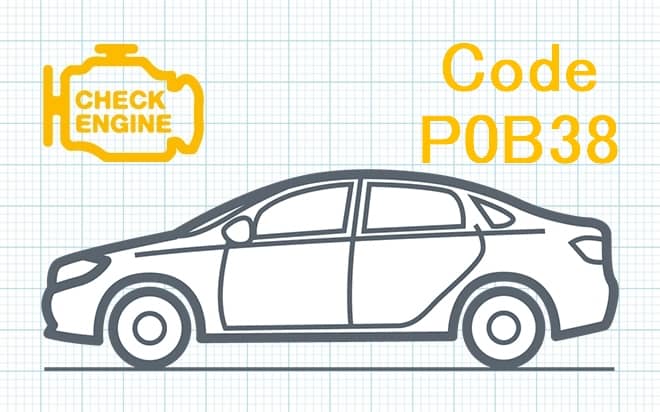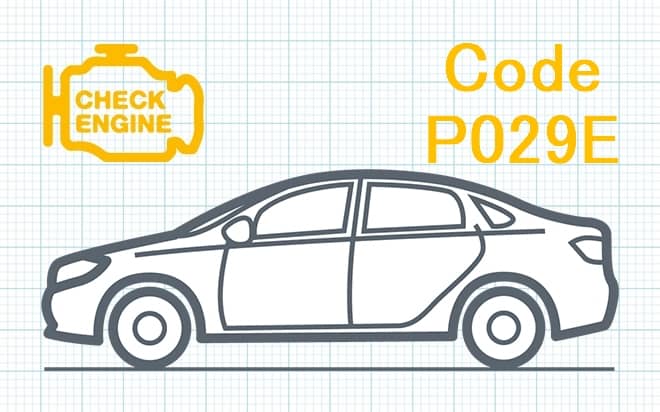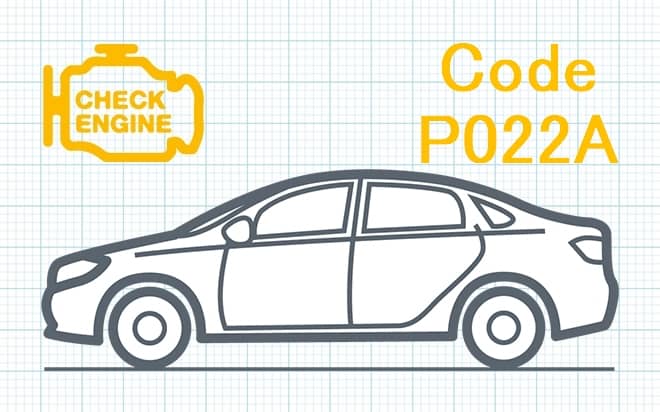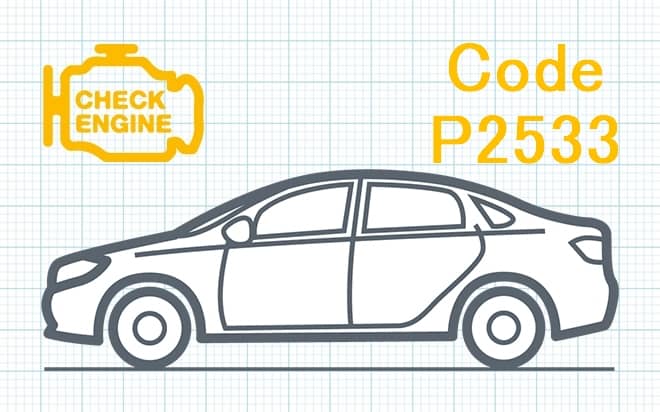Fault code P0456 is called “Evaporative Emission (EVAP) System Very Small Leak Detected” but in different programs it may be called differently. This fault designation applies to all vehicles equipped with OBD-II.
Technical description and explained code P0456
This Diagnostic Trouble Code (DTC) is a general powertrain code. Error P0456 is considered a general code because it applies to all makes and models of vehicles. Although the specific repair steps may vary slightly depending on the model.
This code indicates that part of the EVAP control system is no longer functioning properly. The EVAP system consists of many parts, including (but not limited to) the tank cap, fuel lines, carbon tank, purge valve, and others.
The emission control system (EVAP) prevents fuel vapor from escaping from the vehicle’s fuel system. Fuel vapors are routed through hoses to a carbon canister for storage. Later, when the engine is running, the purge control valve opens, allowing fuel vapors to be drawn in under vacuum.
The vehicle’s PCM (transmission control module) checks the fuel vapor assist system (EVAP) for large and small leaks. If this fault code appears, it indicates a fuel vapor leak in the EVAP control system.
In simple terms, it means that when code P0456 appears, the control unit has detected a very small leak. In fact, the leak may be coming from a hole as small as 1 millimeter in diameter.
Symptoms of vehicle malfunctions
The main signal that an error P0456 has occurred is the Malfunction Indicator Lamp (MIL) is also known as the CheckEngine Light.
It can also be warning signs such as:
- Activation of the Check engine indicator on the instrument panel.
- Possible noticeable fuel odor caused by vapor emission.
A tightly closed fuel tank cap can sometimes be the cause of code P0456.
Factors that can cause this error code
The error code P0456 can mean that one or more of the following problems have occurred:
- Loose or improperly installed gas tank cap.
- Damaged EVAP line or tank.
- The vent o-ring is damaged.
- Problem with the bleed valve.
- Defective vent valve.
- Leak detection pump has failed.
- In rare cases faulty PCM.
How to fix or reset OBD-2 code P0456
Some suggested steps for troubleshooting and fix the error code P0456:
- Remove and reinstall the gas tank cap, clear the codes and see if the codes come back.
- Repair damaged EVAP or tank lines.
- Replace the vent o-ring.
- Test the vent valve.
- Check purge solenoid valve.
- Replace vacuum switch.
- Repair or replace leak detection pump.
- Replace PCM.
Diagnose and repair of problems
For vehicles, the most common cause of error P0456 is the fuel cap. You should also pay attention to the purge control valve or the exhaust valve. Which does not fully retain the vapors, causing very small leaks to be detected.
Since these are fuel vapors, most EVAP leaks are much smaller than the human eye can see. To detect fuel vapor leaks that are hard to detect, smoke tests are performed.
The tests are done with a special smoke machine that pressurizes the fuel system and adds smoke. Therefore, even small leaks will be visible, which significantly reduces the time for troubleshooting.
On which vehicles does this problem occur most frequently
Fault code P0456 can occur on different vehicles but there are statistics on which brands this occurs most often. Here is a list of some of them:
- Audi (TT)
- BMW
- Chrysler (Voyager)
- Dodge (Caliber, Caravan, Dakota, Intrepid, Neon, RAM, Stratus)
- Ford (Focus)
- Hyundai (Elantra, Genesis)
- Isuzu (Rodeo)
- Jeep (Wrangler)
- Lexus (GX470, LX470)
- Mazda
- Mercedes-Benz
- Mitsubishi (Galant, Montero)
- Nissan
- Subaru
- Suzuki
- Toyota (Camry, Sienna)
- Volkswagen (Passat)
- Volvo (XC90)
Fault code P0456 can sometimes be found with other errors. The most common are the following: P0004, P0420, P0440, P0441, P0442, P0443, P0444, P0445, P0446, P0447, P0448, P0449, P0450, P0451, P0452, P0453, P0454, P0455, P0457, P0458, P0459, P1684.





